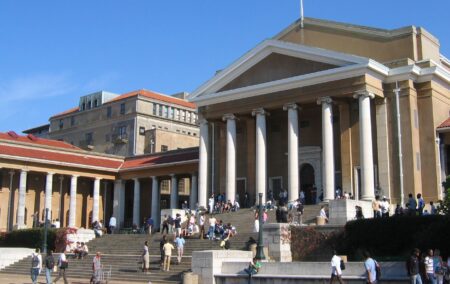Highly regarded and widely published University of Cape Town academic Professor Nicoli Nattrass has slammed the university’s executive for its ‘rushed, error-filled hatchet job’ in calling her paper on why black students are ‘less likely’ to study biological sciences ‘offensive to black students’.
UCT’s statement, she said, ‘legitimated scholarly intolerance’.
Nattrass, a leading researcher in the fields of Aids, poverty and inequality and a former visiting professor at Yale University, said the paper in fact addressed ‘the important debate about transformation’.
Nattrass, who is based at the university’s Institute for Communities and Wildlife in Africa (iCWild), published the paper ‘Why are black South African students less likely to consider studying biological sciences?” in the South African Journal of Science at the end of May.
The paper notes that conservation biology, zoology and the other biological sciences subjects ‘struggled to attract black South African students because persisting inequalities in the schooling system make it less likely that they (black students) will meet the entrance requirements for science courses’.
It suggests ‘there are likely to be other reasons too, notably materialist values and aspirations, as well as experience with pets and attitudes towards wildlife, all of which are likely also to be shaped by a student’s socio-economic background’.
It also argues that in the light of the Fallist protests of recent years, ‘another possibility is that wildlife conservation itself might be regarded as colonial, and students might perceive a trade-off between social justice and conservation’.
However, UCT’s executive, which launched an investigation into the matter, said in a statement: ‘The paper is offensive to black students at UCT, black people in general and to any academic who understands that the quality of research is inextricably linked to its ethical grounding.’
The Black Academic Caucus at UCT also criticised the paper, saying a ‘variety of tropes about black students and black people and their “culture”’ led to ‘some disturbing conclusions from the author’.
Nattrass rejected the criticisms.
She said exploratory research with students on the pressing question of why conservation biology at UCT struggled to attract black South African students was ‘presented … to an international institutional review panel chaired by a deputy vice-chancellor (a member of the executive)’, and she was ‘encouraged to publish a commentary as a contribution to the important debate on transformation’.
UCT’s statement, she said, ‘bears the hallmarks of a rushed, error-filled hatchet job in response to political pressure from the Black Academic Caucus (BAC) and student activists’.
She said the BAC’s ‘misrepresentation of the commentary suggests a willful attempt to advance an ideological agenda through manufacturing and mobilizing outrage’.

